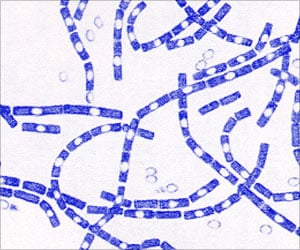The mircobiome serves as a mediator of host gene expression through the epigenome, the chemical information that regulates which genes in cells are active.

‘The gut bacteria metabolizes plant nutrients to form short-chain fatty acids that are important chemical messengers, communicating with the cells of the host through the epigenome.’





Writing online in the journal Molecular Cell, a team of
researchers from the University of Wisconsin-Madison describes new
research helping tease out the mechanics of how the gut microbiome
communicates with the cells of its host to switch genes on and off. The upshot of the study, another indictment of the so-called Western diet (high in saturated fats, sugar and red meat), reveals how the metabolites produced by the bacteria in the stomach chemically communicate with cells, including cells far beyond the colon, to dictate gene expression and health in its host.
“The bugs are somehow driving gene expression in the host through alteration of the epigenome,” explains John Denu, a UW-Madison professor of biomolecular chemistry and a senior researcher at the Wisconsin Institute for Discovery, and a co-author of the new study. “We’re starting to understand the mechanism of how and why diet and the microbiome matter.”
The study, which was led by Kimberly Krautkramer, an MD/Ph.D. student in the UW School of Medicine and Public Health, revealed key differences in gene regulation in conventionally raised mice and mice raised in a germ-free environment. The mice were provided with two distinct diets: one rich in plant carbohydrates similar to fruits and vegetables humans consume; the other mimicking a Western diet, high in simple sugars and fat.
A plant-based diet, according to Federico Rey, a UW-Madison professor of bacteriology and also a co-corresponding author of the new report, yields a richer microbiome: “A good diet translates to a beautifully complex microbiome,” Rey says.
Advertisement
The new Wisconsin study shows that a small set of short-chain fatty acids produced as the gut bacteria consume, metabolize and ferment nutrients from plants are important chemical messengers, communicating with the cells of the host through the epigenome. “One of the findings here is that microbial metabolism or fermentation of plant fiber results in the production of short-chain fatty acids. These molecules, and potentially many others, are partially responsible for the communication” with the epigenome, says Denu.
Advertisement
“As we move away from plant-based diets, we may be losing some of that communication between microbes and host,” notes Rey. “With a Western-type diet, it seems like the communication between microbes and host gets lost.”
Foods rich in fat and sugar, especially processed foods, are more easily digested by the host, but are not necessarily a good source of food for the flora inhabiting the gut. The result is a less diverse microbiome and less communication to the host, according to the researchers.
A surprising finding in the study is that the chemical communication between the microbiome and host cells is far reaching. In addition to talking to cells in the colon, the microbiome also seems to be communicating with cells in the liver and in fatty tissue far removed from the gut. That, says Denu, is more evidence of the importance of the microbiome to the well-being of its host.
The kicker experiment in the study, says Denu, was providing mice raised in a germ-free environment with three different short-chain fatty acids that the study showed to be important messengers to the epigenome. The supplement was enough to promote the kind of healthy interplay between microbiota and host cells seen in mice given a diet high in plant fiber.
“It helps show that the collection of three short-chain fatty acids produced in the plant-based diet are likely major communicators,” adds Denu. “We see that it is not just the microbe. It’s microbial metabolism.”
Source-Newswise












